Greetings from LOCAL FUTURES
|
 |
In This Update
– Voices of Hope in a Time of Crisis & the launch
of the International Alliance for Localization
– Announcing Planet Local
– Planet Local Photo Contest: deadline August 8
From our Blog:
– Indigenous knowledge and
global wellness
Events:
– Global to Local Workshops this August in Ladakh
– Degrowth Conference: September
2014, Germany
– Slow Money Gathering,
November 2014, Colorado, USA
– Economics of Happiness Conference: March 2015, Portland, USA
Policy Watch:
– Rising Global Movement Calls for #NoTTIP
Articles of Interest:
– Land Taken Over by Foreign Investors Could Feed 550 million…
– Why Are We Importing Our Own Fish?
– Insecticides Put World Food Supplies at Risk…
– Losing a World of Languages
Voices of Hope in a Time of Crisis
Including the launch of the
International Alliance for Localization
On November 8th, we’re bringing the message of the Economics of Happiness to new york city.
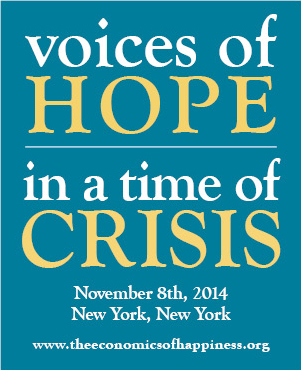
Join us for a day of thought-provoking and constructive talks on our multiple crises and how we can solve them, featuring a roster of international speakers, including Chris Hedges, Laura Flanders, Charles Eisenstein, Michael Shuman, Manish Jain, Bayo Akomolafe, Judy Wicks and Helena Norberg-Hodge. Check our website for more information about topics and speakers.
This event will also mark the official public launch of the new International Alliance for Localization (IAL).
The IAL aims to connect a growing network of individuals and organizations dedicated to exploring new approaches to today’s ecological, social, and economic problems – approaches that respect and protect ecological and cultural diversity while expanding international dialogue and exchange. The IAL will provide a forum for cross-cultural support and collaboration, and has the potential to be a united and powerful force for positive change, internationally.
Register before September 20th for discounted early bird tickets. Ticket prices include membership to the IAL. Scholarships are also available. For more info.,
please email: [email protected]
Announcing Planet Local: a mosaic of small-scale solutions from around the world
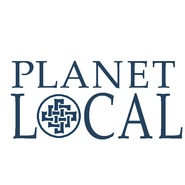
Local Futures is pleased to announce our Planet Local series, highlighting diverse localization stories and initiatives from every part of the planet.
We are launching the series with a collection of inspiring real-life examples – ranging from a women’s agricultural collective in rural Guatemala to an alternative currency in the heart of London. Each week Planet Local will feature a new example of localization in action.

The series will offer a
curated list of local living solutions in such areas as community-based
renewable energy, local food and farming, local business, eco-villages,
alternative education, radical democracy, the commons, and more.
Planet Local demonstrates that the movement for localization is broader and more diverse than many people realize: it’s an intricate mosaic of small-scale solutions happening on a planet-wide scale. The series aims to inspire a politics of hope, grounded in actual on-the-ground projects that too often go unnoticed by the mainstream media.
Planet Local will provide tangible proof that the solutions to our many crises are already sprouting up from the cracks of a faltering global economy, in every corner of our sacred planet.
Read our inaugural set of Planet Local initiatives and follow us on Facebook or Twitter to get weekly updates. If you have a localization story or initiative that you’d like us to include in the series, please email us at: [email protected]
We wish to thank our outstanding intern Sean Keller, who has been instrumental in collecting and selecting examples for the Planet Local series.
|
 |
|
|
Enter
your photos of what localization looks like where you are in our Planet Local photo contest. The contest closes August 8, and winners and
prizes will be announced in late August. You can submit
photos in the categories of:
•
Local food
•
Community
•
Connection with
nature
•
Traditional wisdom
and local knowledge
•
Local
markets
We’ve
received some wonderful photos so far, showcasing local economy initiatives
from diverse parts of the world – Canada, Italy, Morocco, Panama, Costa Rica, Egypt, Australia, the Philippines and the US. Check out our contest
gallery to see some of the entries.
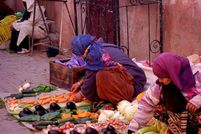
Photo by Alice Perna, Local Market in Marrakech
We’d
like to thank our judges, Laura
Kozlowski and
Tommaso
Galli,
professional photographers who have generously volunteered their time. Laura
teaches digital photography, and specializes in photographing nature, art, and
people. Tommaso works both internationally and in his native Italy, with a
focus on capturing the interface between culture and ecology. He leads
photography tours and adventures, and has produced a beautiful photo book
on Ladakh – “Ladakh tra passato e presente” – featuring the work of The Ladakh Project. We’re grateful
that they’re lending their expertise to the Planet Local photo contest.
PHOTO GALLERY &
TO ENTER
From our Economics of Happiness Blog:
Indigenous Knowledge and Global Wellness
By Narayan Dhaka
Modern medicine has enabled people to live longer lives, but what have we lost in turning our backs on tradit ional ways of healing? Today, heart disease is the number one cause of death around the world. An estimated 17.3 million people died from cardiovascular diseases in 2008, representing 30% of all global deaths. ional ways of healing? Today, heart disease is the number one cause of death around the world. An estimated 17.3 million people died from cardiovascular diseases in 2008, representing 30% of all global deaths.
Events:
Join us in Leh, Ladakh for our Global to Local workshops, August 5-7 at the Ladakh Ecological Development Group (LEDeG, also known as the Ecology Centre).
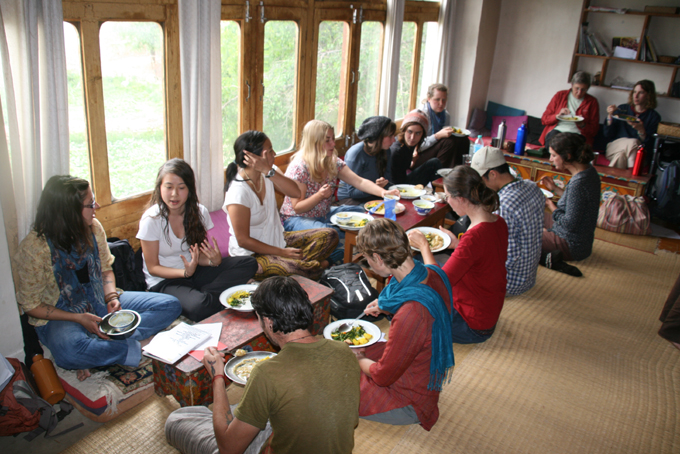
The
workshops offer participants a unique opportunity for reflection,
dialogue and co-learning. Participants will:
-
Learn
about environment and development issues and challenges in Ladakh
today;
-
Gain
a deeper understanding of the true costs of globalization and
development in Ladakh and elsewhere;
-
Critically
reflect on the meaning(s) of such concepts as “sustainable
development”, “growth”, and “progress”;
-
Explore
the multiple benefits of strengthening local communities and
economies worldwide;
-
Discover
inspiring localization initiatives in India and around the world;
-
Watch
and discuss pertinent thought-provoking films.
SPACE
IS LIMITED! For more information about the workshops, click HERE.
To reserve your spot, RSVP today by emailing [email protected]
?
Tourist
Education
In
addition to our Global to Local workshops, Local Futures is running a
Tourist Education program for visitors to Ladakh, through early
September.
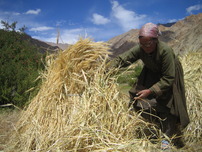
Every
day (except Sundays) we host screenings of our documentary films
Ancient
Futures and
The Economics
of Happiness,
at LEDeG’s Ecology Centre. The screenings are followed by
broad-ranging discussions facilitated by Local Futures staff and
volunteers. We
also offer private workshops for tourist groups by arrangement.
For
more information about the Tourist Education program, or to request a
private workshop for a tourist group, get in touch with our Ladakh
Project coordinators at: [email protected] ?
READ
MORE
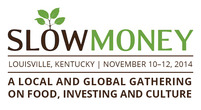
Slow
Money, a nonprofit organization that catalyzes the flow of capital to
small and local food enterprises, will be hosting its 2014 gathering
in Louisville, Kentucky (USA), at the Kentucky
Center for the Performing Arts,
November
10-12.
The
event will feature world-renowned thought leaders, food entrepreneurs
and farmers, pioneering investors and donors, and “just plain
regular folks who want to know where their food comes from and where
their money goes.” Slow Money 2014 speakers include Mary
Berry, Vandana
Shiva, Joel
Salatin, Amy
Domini, Patrick
Holden, Gary
Nabhan, Eliot
Coleman and Greg
Steltenpohl.
Slow
Money 2014 is an opportunity to contribute to a vital public
conversation about how we can all work together to bring money back
down to earth and support the new generation of small food and
business entrepreneurs.
READ
MORE & TO REGISTER
The Economics of Happiness Conference – New Dates for Portland, Oregon
The fourth Economics of Happiness Conference will take place February 27- March 1, 2015 in Portland, Oregon (USA). With speakers from around the world exploring topics ranging from education to energy, spirituality to finance, food to healthcare, there will be something for everybody. Come learn, share, network and be inspired!
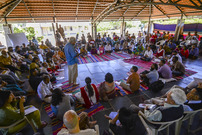
Economics of Happiness conference, India, 2014
Registration will open next month. Further information will be posted on our website. To those who were hoping to come on the tentatively scheduled dates in September, we apologize for any inconvenience: we had a problem with our venue but we’re very happy to be back on track and hope to see you in 2015!
Rising Global Movement Calls for #NoTTIP
By Adam Parsons
Over the past few months, hundreds of thousands of people have signed petitions that call for full transparency in the Transatlantic Trade and Investment Partnership (TTIP) negotiations between the USA and the EU.
The sixth round of TTIP talks kicked off on the 14th of July in Brussels. The official talks, which had been preceded by months of secret negotiations, started with the usual promises of stronger economies and new jobs. Meanwhile, the opposition has been steadily growing. (You can read more about this in our blog post on the movement against the TPP & TTIP)

In this article, Adam Parsons describes the proposed TTIP treaties as an “unprecedented corporate power-grab” and explains how organizations and activists are working globally to expose the true nature of the TTIP treaties: if adopted, they would be part of “the greatest transfer of power to transnational capital that we have seen in a generation.”
READ MORE
WTO Fails to Ratify Trade
Agreement
If you are concerned about the impact of international “free trade” agreements, here is some good news.
The Wall
Street Journal reports that: “The World Trade Organization [WTO] failed
Thursday to ratify an agreement designed to streamline the global trade system”.
The failure to ratify
is thanks to India, which refused to sign off on the agreement unless the
group (including representatives from 160 member countries), allowed the
exemption of food-subsidies and food stockpiling programs like India’s, from
the treaty.
The latest failure to agree is just one of
many, as the Indian Z
News reported earlier: “Several countries issued
statements saying that a failure to agree the deal would be a massive blow to
the WTO, which is trying to emerge from a decade of failed negotiations on further
liberalizing global trade.” Good news indeed. READ MORE:
WALL
STREET JOURNAL & Z
NEWS
Land Taken Over by Foreign Investors Could Feed 550 million People
By Damian Carrington
A new study concludes that land grabbing in africa and Asia for export crops and biofuel production is keeping populations malnourished and hungry. Local smallholders who provide for local needs are being displaced by industrial-scale producers of export crops – a process familiar to Latin American countries that long ago signed on to international ‘free trade’ treaties.
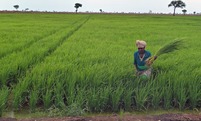
This recent study, originally published in Environmental Research Letters, exposes the enormous scale of ‘land grabbing’ by foreign investors in Africa, Indonesia and Papua New Guinea. In those regions, some 31 million hectares (77 million acres) of land has been acquired by overseas investors since 2001. The crops grown on grabbed land are commonly devoted to food exports or biofuel production. If used to meet local needs instead, the same land could feed between 300 to 550 million people, effectively ending malnourishment in those countries
Why Are We Importing Our Own Fish?
By Paul Greenberg

Most of us know about the long distances that food travel to reach our table, often involving detours to other countries for packing or processing.
The import and export of identical food products is also commonplace, and part and parcel of a growth economy that has reduced food to a mere trading commodity (see The Economics of Happiness film and the book Bringing the Food Economy Home).
Paul Greenberg looks at the exchange of identical seafoods in this article from the New York Times: “….even though the United States controls more ocean than any other country, 86 percent of the seafood we consume is imported. But it’s much fishier than that: While a majority of the seafood Americans eat is foreign, a third of what Americans catch is sold to foreigners.”
READ MORE
Insecticides Put World Food Supplies at Risk, say scientists
By David Carrington
More than fifty years after Rachel Carson’s Silent Spring – a groundbreaking book exposing the damage of pesticides to the environment and wildlife – it appears that little has changed, except the scale of the damage.
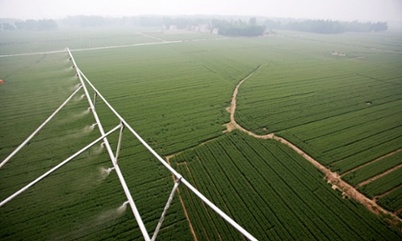
Despite the eventual banning of the dirty dozen pesticides (DDT and other organophosphates) in many countries and the development of new and allegedly safer chemicals, the damage described by Rachel Carson in 1962 continues.
Damian Carrington reports on a four-year scientific assessment of the use and effect of pesticides, carried out by an international team of 29 scientists. The assessment concludes that “the world’s most widely used insecticides have contaminated the environment across the planet so pervasively that global food production is at risk”, and that “regulations on pesticides have failed to prevent poisoning of almost all habitats.”
READ MORE
As Forests are Cleared and Species Vanish, There’s One Other Loss: A World of Languages
By John Vidal
John Vidal reports on a recent study that links disappearing habitats with the loss of languages. “One in four of the world’s 7,000 spoken tongues is now at risk of falling silent forever as the threat to cultural diversity grows.” O f the 7,000 languages spoken worldwide, half now have fewer than 10,000 speakers, and these 3,500 languages are spoken by only 0.1% of the world’s population – equivalent to a city about the size of London. f the 7,000 languages spoken worldwide, half now have fewer than 10,000 speakers, and these 3,500 languages are spoken by only 0.1% of the world’s population – equivalent to a city about the size of London.
Followers of Local Futures/ISEC´s work will be familiar with the link between biological and cultural diversity, as well as with the destructive impact of the global consumer culture on diverse communities and societies.
The report goes on to document how colonization, globalization and urbanization are resulting in the dominance of handful of global languages: 95 percent of the world’s population speaks one of just 400 languages, and 40 percent of us speak one of just eight languages: Mandarin, Spanish, English, Hindi, Portuguese, Bengali, Russian and Japanese.
|
|
Call for Volunteer
BAHASA TRANSLATOR
We need help proof-reading/editing a Bahasa (Indonesian) translation of The Economics of Happiness film transcript.
FOR MORE INFO
Please contact Anja at:
a.lyngbaek@isec.org.uk
Videos from the Economics of Happiness Conference, Bangalore:
Panel Discussion:
Ashish Kothari
P. V. Rajagopal
Keibo Oiwa
Bayo Akomolafe
Manish Jain
On The Economics of Happiness Blog:
The Local Bites Podcasts:
The Economics of Happiness
film On Demand
The Economics of Happiness
film on DVD
(with subtitles)
Cantonese
Croatian
Flemish
French
German
Hindi
Hungarian
Italian (dubbed)
Japanese
Latvian
Portuguese
Russian
Slovenian
Spanish
Turkish
TO ORDER
Articles of Interest:
|
|